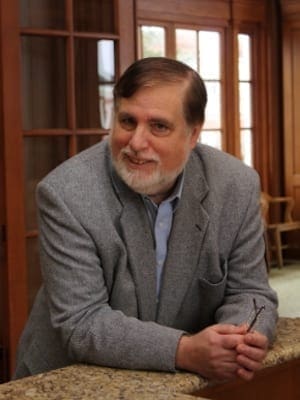It’s that time of year when classes begin and all kinds of students start back to school, including people in ministry and Christian vocations seeking the highest levels of degree attainment. But there’s a lot of variety out there, raising important ethical issues for both candidates and institutions.
There are excellent reasons to pursue advanced studies at the doctoral level. First is a sense of calling to a vocation that requires academic research skills. Teaching at the undergraduate, seminary or graduate levels is typical. So is professional writing or research.
A second is to focus on a specialized area in which to work. Yet another group of doctorate seekers requires validation in their professions that is predicated upon advanced work in a field, such as counseling or community service.
Third, there are those who want the doctorate as a capstone to their continuing education.
Before embarking upon a demanding program of doctoral work, one needs to count the personal costs, the impact upon family and employment, and the program’s actual expenses. There are no shortcuts to quality graduate study. Realistically, the payout of material advancement and professional recognition may be nowhere near the costs involved.
What degrees are appropriate?
The doctor of ministry evolved as a professional doctorate to be the equivalent of the doctor of education (Ed.D), law (J.D.), medicine (M.D.), psychology (Psych.D.) and missiology (D.Miss.).
It largely supplanted the master of theology (Th.M.) degree in many theological schools, where in its place advanced students were awarded a doctorate for further studies built primarily upon practicing ministry or holding administrative positions. Persons who teach in practical fields have often earned a doctor of ministry in a commensurate area or discipline, though the doctor of ministry is generally not considered a validation for an academic career. The vast majority of these degrees have been earned by pastors.
Research academic doctorates (the doctor of theology, doctor of philosophy and doctor of sacred theology) are designed to equip people to undertake advanced, specialized research and instruction in a theological discipline.
These doctoral programs typically involve guided readings and mentored research in a residential context, validated by examinations and language capabilities and nomination by recognized faculties. The history of the academic doctorate is a thousand years old and is characterized by broad bibliographic mastery and unique publishable contributions to knowledge. It is carefully guarded in academia for standards of quality and performance.
How do seminaries and universities compare?
People employed in religious work in the United States and Canada will have to choose between graduate degrees in seminaries or universities. Two decades ago, the Association of Theological Schools (ATS) set new standards for faculty preparation and raised serious questions about seminary doctorates.
For a time the survivors were the Southern Baptist seminaries and the “theo-universities” like Fuller, Trinity, Princeton Seminary, Union in New York and the University of Chicago. Gradually, strong theological doctorates emerged among university-related theological schools like Duke, Emory, Boston, Vanderbilt, McMaster University, Toronto School of Theology and the Graduate Theological Union.
The issues were size and breadth of faculty, library and financial resources. More recently, ATS seems to have changed its standards for doctoral studies to sanction some doctorates from small faculties or limited perspectives. Care must be taken when scrutinizing these schools for doctoral studies at an acceptable standard.
Beware degrees of dubious value and currency.
The market is being flooded with distance doctorates providing nonresidential degrees, completely online programs, nonaccredited degrees, “international contexts” and non-educational institutions offering doctoral degrees.
Years ago, one would not have spent comment upon such efforts. However, recently pastors and aspiring educators have enrolled in these programs and used them for presumed professional validation. They are advertised in leading professional magazines. Nevertheless, a doctorate that lacks specialized content, a rigorously defended dissertation, an adequate resident faculty and learning resources, and a recognized, accredited institutional identity will likely not pass muster among discerning professionals.
Attempts at marketing or employing degrees in vocations for which they were not intended is likewise a disservice to ministry and Christian higher education.
I have a friend and colleague now retired from Oxford University who long ago observed, “You North Americans seem not to understand the crucial difference between the letters before your name and those that rightly come after one’s name, i.e., Dr., Rev., etc. vs. Ph.D., D.Min., etc. One is earned, the other is presumed.”
He was right. We need to choose wisely and with integrity how we go about building educational validation for our professional identities and advising others on prudent courses of study.
William H. Brackney is the Millard R. Cherry Distinguished Professor of Christian Theology and Ethics at Acadia University and Acadia Divinity College in Nova Scotia.

